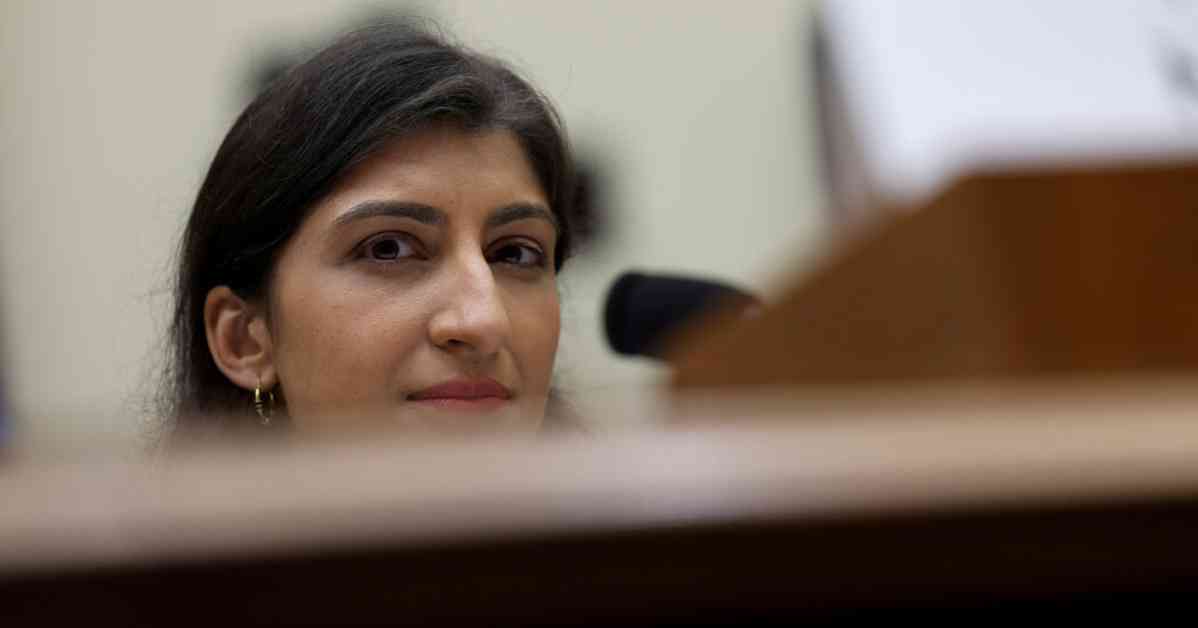President Kamala Harris is facing opposition from billionaire donors over the potential appointment of legal prodigy Lina Khan as chair of the Federal Trade Commission (FTC). The debate over Khan’s future at the FTC has stirred controversy among Harris’s supporters and detractors, with some wealthy donors calling for her removal while progressives champion her groundbreaking work in antitrust law.
Billionaire donors such as Reid Hoffman and Barry Diller have publicly expressed their displeasure with Khan, with Hoffman donating $10 million to a Democratic super PAC and Diller labeling her as a “dope.” Despite the criticism, Khan has garnered support from progressives, populist conservatives, and even Vice Presidential candidate JD Vance, who commended her work within the Biden administration.
The potential clash between Harris’s billionaire donors and Khan’s admirers underscores a larger debate within the Democratic party about the role of antitrust enforcement and the influence of corporate power. As Harris’s economic platform takes shape, it appears more aligned with progressive values and a commitment to combat price gouging and corporate greed.
The Battle Over Khan
The tension surrounding Lina Khan’s potential role at the FTC reflects deeper divisions within the Democratic party over economic policy and corporate influence. While some of Harris’s billionaire donors have called for Khan’s removal, citing concerns about her approach to antitrust enforcement, progressives and populist conservatives see her as a champion for workers, small businesses, and startups.
Khan’s reputation as a legal prodigy has earned her praise from a diverse range of political figures, including Pramila Jayapal, Josh Hawley, and Matt Gaetz. Despite facing backlash from some quarters, Khan remains a respected figure in antitrust circles and a key player in shaping Harris’s economic agenda.
Harris’s Economic Approach
As President Harris’s economic approach takes shape, it is becoming increasingly clear that she is committed to a populist agenda that prioritizes competition, consumer protection, and fair market practices. Harris’s plan to combat price gouging and corporate greed signals a departure from the pro-business policies of previous administrations, with a focus on protecting the middle class from the excesses of concentrated wealth.
At the Democratic convention, speakers emphasized the importance of competition and the need to rein in monopolies that harm workers, small businesses, and startups. This shift in rhetoric aligns with Khan’s advocacy for robust antitrust enforcement and signals a potential policy direction that values economic fairness and equity.
The Role of Lina Khan
Lina Khan’s role in shaping Harris’s economic agenda highlights the growing influence of antitrust advocates and progressive voices within the Democratic party. Khan’s expertise in antitrust law and her commitment to challenging corporate power have positioned her as a linchpin of a potential Harris presidency, despite pushback from some of Harris’s billionaire donors.
Khan’s ability to bridge ideological divides and garner support from both left-wing and populist conservative circles underscores the broad appeal of her antitrust advocacy. As Harris navigates the competing interests of her donor base and progressive allies, Khan’s expertise and vision for a fairer, more competitive economy will play a crucial role in shaping the administration’s economic policies.
In conclusion, the debate over Lina Khan’s potential appointment as chair of the FTC reflects larger divisions within the Democratic party over economic policy and corporate influence. As President Harris’s economic agenda takes shape, it is becoming increasingly clear that she is committed to a populist approach that prioritizes competition, consumer protection, and fair market practices. Khan’s role as a leading advocate for antitrust enforcement underscores the administration’s commitment to challenging corporate power and promoting a more equitable economy.














